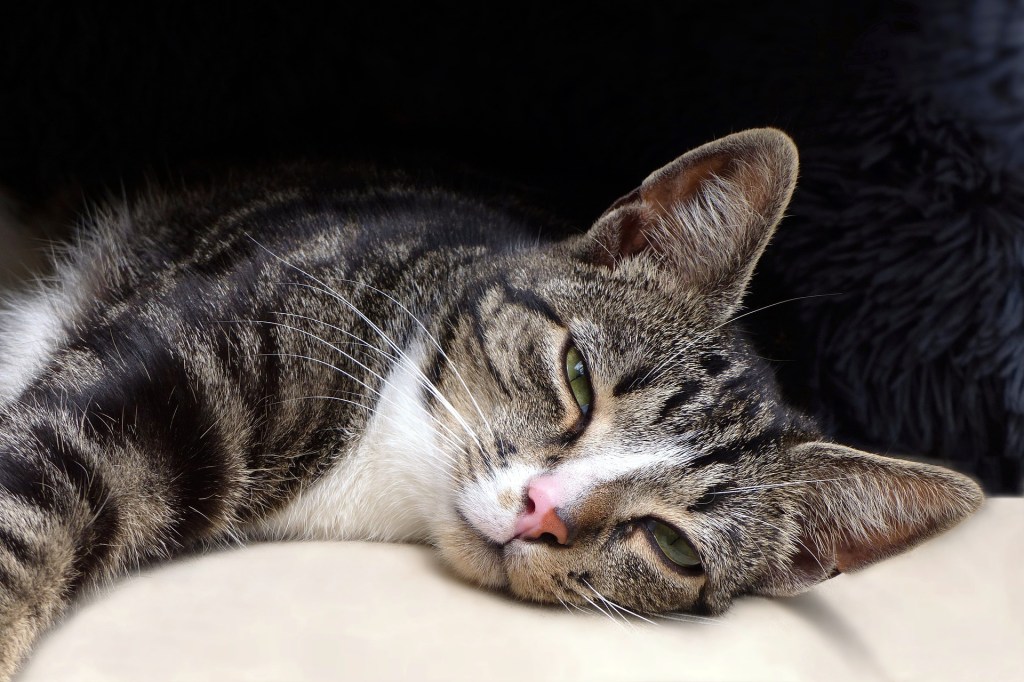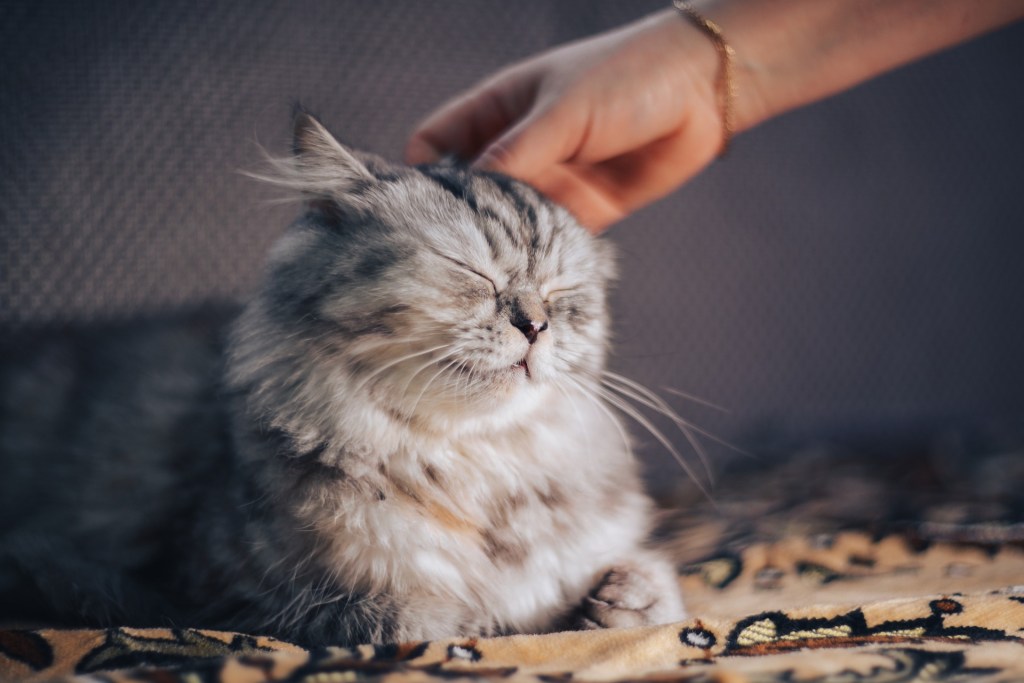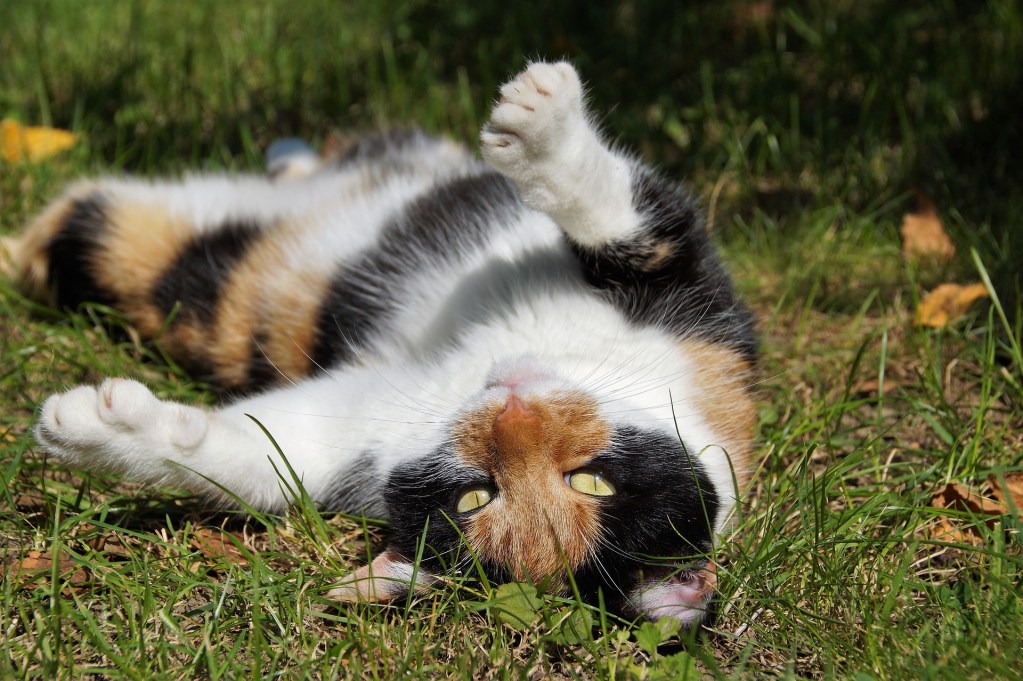Blinking serves multiple purposes for both humans and felines. It helps to flush debris out of the eye, keeps the eye hydrated, and can even protect the eye from impacts and potential injuries. Sometimes, though, your cat may blink for other reasons, especially if they look at you while blinking slowly and deliberately. This special blink isn’t so much a physical response as it is a way for your cat to get a message across to you. You can consider yourself lucky if your feline friend looks at you like this!
So, why do cats blink slowly when they look at you? Understanding this behavior can help you learn what they’re trying to say and even help you communicate with your cat in the same way!
Why do cats blink at you?

“Slow blinking” describes when a cat holds their eyelids almost closed and seems to blink at you. They may even hold eye contact while doing this! If you see your cat slow blinking, notes PetMD, you’re witnessing a special behavior. According to Dr. Katie Grzyb, slow blinking signals that your cat trusts you. Since cats often display this behavior while they’re rolling on their backs and purring, it’s likely that your cat is telling you that they feel safe around you. In other words, this blinking is a compliment!
Science Alert reports that a slow-blinking message can go both ways, and you may be able to blink at your cat as a way of showing them you love and trust them, too. Scientists have observed how cats and humans interact and found that cats are more likely to blink slowly after a human exhibits the behavior first. In a separate study, scientists also found that cats are more likely to approach a human’s outstretched hand after that human has slow blinked at the cat.
You can experiment with this method in your home. When your cat is relaxed, sit nearby and narrow your eyes until they’re nearly closed. Do this a few times, then watch your cat to see how they respond. Look to see if they slowly blink back at you or if they exhibit other signs of relaxation, like purring, lying down to expose the belly, or initiating affection.
Other causes of slow blinking

Now that you know what slow blinks mean when they’re meant for a cat’s favorite person, you understand just how sweet and special they are. But what does it mean when a cat slowly blinks without the presence of a person? Although your feline isn’t trying to communicate with someone else, their narrowed eyes and blink-like gestures are still a positive thing. Cats may take up this relaxed posture when feeling content and happy, so this is still good news for cat owners!
However, cats may also look like they’re squinting due to irritation or pain in the eyes. Most of the time, this will be accompanied by other symptoms like eye discharge or pawing at the eyes, but a number of different conditions can limit the amount that a cat opens their eyes. These include:
- Allergies
- Hair or foreign object in the eye
- Corneal ulceration
- Uveitis
- Glaucoma
- Skin concerns and abnormal eyelash growth
- Facial nerve paralysis
If a cat’s ‘slow blinking’ lasts for a long time or does not seem to be in response to contentedness, don’t wait to contact your cat’s veterinarian. Many optical concerns can be easily treated but can also cause major complications if left untreated.
Additional cat body language to watch for

Cats communicate through body language; the more you learn to read that body language, the better you can understand your cat. The slow blink is just one element of body language that you can learn to recognize.
Cat behaviorist Jackson Galaxy explains that there are several common cat body language signals that humans often misinterpret:
The “Halloween cat” with an arched back might appear aggressive, but if you notice your cat assuming this posture, they’re actually communicating that they’re scared. Your cat is making themself as big as possible because they feel threatened and are trying to protect themself. It doesn’t mean they’re about to bite.
If your cat lies on their back, you might think they’re asking for a belly rub, but if you reach out and touch the belly, they’ll probably swat at you and might even bite you. Your cat’s showing you their vulnerable belly is a posture that demonstrates trust. It doesn’t mean they want you to rub their belly, though.
Tail wagging is another form of body language that doesn’t mean what you might expect. We’re used to associating tail wagging with happiness because that’s the common meaning in dogs, but with cats, tail wagging indicates agitation and excess energy. You might notice that your cat wags their tail more and more until they finally leap up, leaves the area, or even attacks.
Final thoughts on cat blinking

Remember, cat body language is significantly different than dog body language. Behaviors and postures like a wagging tail and an exposed belly mean something different when your cat does them than when your dog does. If you’re used to dog body language, you’ll need to study cat body language to better understand the feline members of your household.
There are tons of cat body language resources available online, including plenty of videos and images that you can review. Spending a little time learning about what your cat is trying to say can help improve your communication with them, and your cat will thank you for putting the effort into understanding them.



